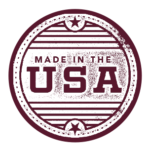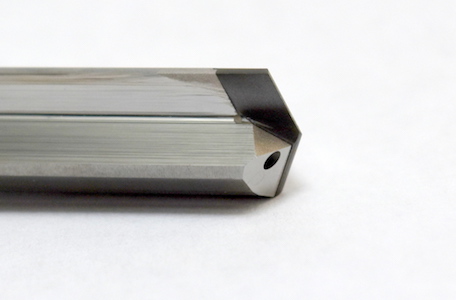Composites are increasingly integrated into designs of all forms – from land-based overwrapped pressure vessels to automobiles, aircraft and military equipment. Sooner rather than later, shops must acquire the necessary expertise to machine composite materials along with the proper tooling to stay agile and competitive.
Industrial composites are generally laminates of a thermosetting resin such as epoxy, phenolic or polyimide reinforced with cotton, glass or synthetic fabric like aramid and carbon fiber. Composites are very durable under extreme conditions and have high strength to weight ratios. They are significantly lighter than their metal counterparts and ideal for shaping complex parts for fuel efficient, lightweight auto and aerospace designs.
The characteristics that make them desirable, however, also make them difficult to machine. Composites are heterogenous with different materials, densities and fiber orientations all woven into a matrix. Additionally, their hard and abrasive properties generate a tremendous amount of friction and heat during the machining process. Unfortunately, most composite machining cannot be done with cooling fluid, which compounds the inherent poor machinability.
The right tooling can efficiently cut through tough composite materials while maintaining acceptable cutting speeds and tool life. Generic carbide tooling not meant for the job will result in expensive delaminated and scrapped parts, tool clogging and fracture. When machining composites, standard carbide tool life decreases by 20 to 50%.

EDGEX4 PCD tooling exceeds in manufacturing applications for defense and aerospace that rely on tough, exotic materials.
West Ohio Tool has extensive experience and success designing tools for manufacturers focused on machining composites for a variety of industries, especially the aerospace and defense sectors. Its EDGEX4® series Polycrystalline Diamond (PCD) drill with a solid wafer cross-center tip and custom geometry has been used by a western U.S. aerospace manufacturer to successfully drill hundreds of holes in structural aircraft components. The parts were made of sandwiched 10 mm thick carbon fiber reinforced plastic (CFRP) and a 4 mm aluminum plate that quickly wore standard carbide drills. The EDGEX4 quickly produced burr-free holes without delamination at a significantly lower cost per hole than the manufacturer’s previous drills.
For another manufacturer – a defense contractor – West Ohio Tool provided custom-designed PCD end mills to process parts made of syntactic foam with special epoxy filled with microscopic glass bubbles. Despite the material’s harsh abrasiveness, West Ohio Tool’s end mill machined at least three times more parts than the contractor’s previous PCD tooling at a less expensive price point.
In addition to its PCD tooling, West Ohio Tool has the experience and expertise to reverse engineer tooling from part prints and combine multiple tools into one.
Composites are not standard materials. Shops must be prepared to step away from standard tooling, use the right tool for the job, and get it right the first time.





